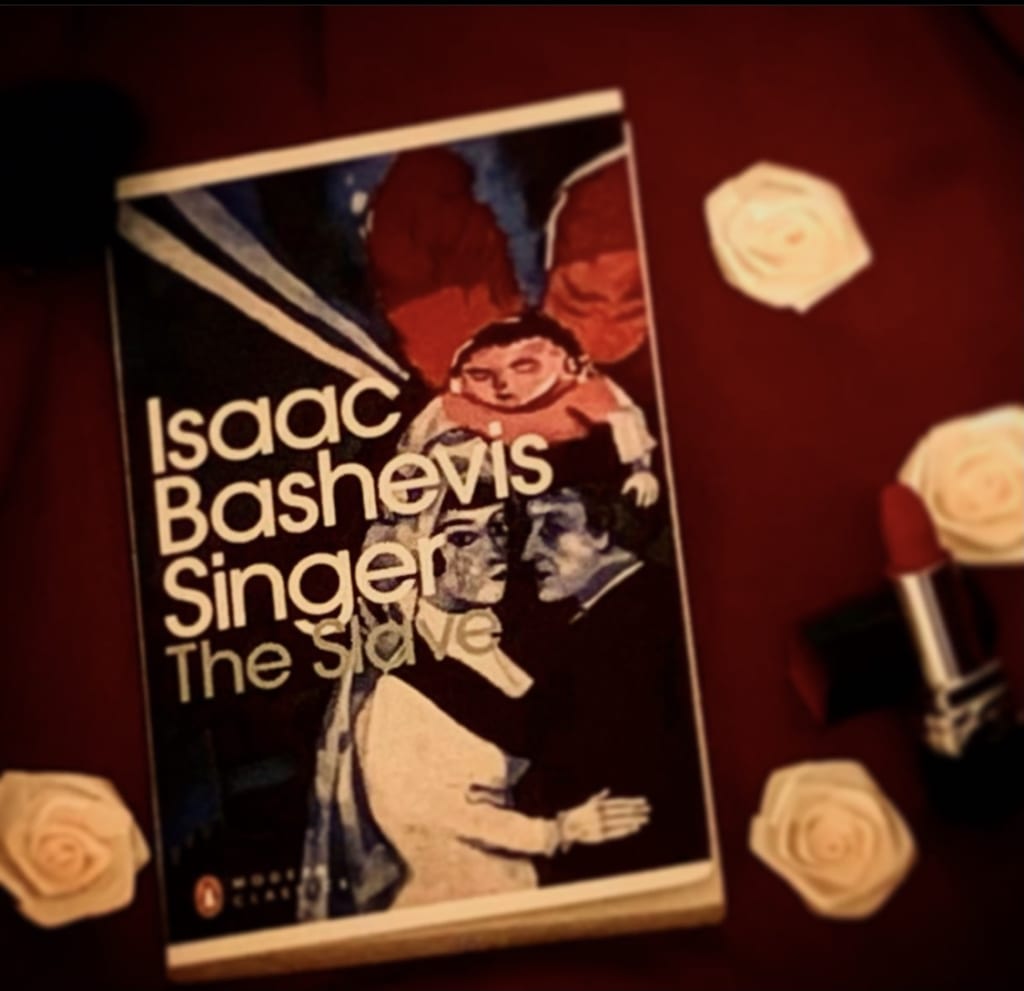Book Review: "The Slave" by Isaac Bashevis Singer
5/5 - A terrifyingly brutal story of slavery, love and tragedy

Isaac Bashevis Singer writes this story about a slave named Jacob and his wonder with a strange woman named Wanda. But it is not just a story, it is a forbidden love that cannot happen but the two of them push through the brutality and the very risk of being beaten to the point of having a near-death experience. I would say that this book is about more than just forbidden love though. Instead, it is actually more about struggle and defiance. There are many references to whether anyone is actually up there or not and whether they are even listening if they are. But there are also passages of almost debilitating loneliness in which the protagonist crumbles very existentially whilst he contemplates his place in the world as being something either meaningful with one situation and entirely meaningless with another. It is a feature I have seen of many Isaac Bashevis Singer books including "The Penitent" and "The Magician of Lublin".
And it could not be an Isaac Bashevis Singer book without the argument of good vs. bad when put into the context of action and belief, could it? Of course it couldn't. That's why this theme plays such a huge role in the book. It seems to outline to us the very character arc of Jacob and makes the reader almost support his efforts. It is a brilliant way of turning a simple tragic love story into something that includes every slice of human ethics you can think of.
And as always in my articles, let us have a look at some passages I thought were simply amazing:
"Jacob stood gazing at the hills, a tall, straight man, blue-eyed with long brown hair and a brown beard. He wore linen trousers which did not reach to his ankles and a torn, patched coat. On his head was a sheepskin cap but his feet were bare. Though he was not out of doors so much, he remained as pale as a city dweller. His skin did not tan and Wanda said that he resembles men in the holy pictures that hung in the chapel in the valley. The other peasant women agreed with Wanda. The Gazdas, as the mountaineers were called, had wanted to marry him to one of their daughters, build him a hut and make him a member of the village, but Jacob had refused to forsake the Jewish faith and Jan Bzik, his owner, kept him all summer until late fall in the bark, high on the mountain where the cattle could not find food and one had to feed them with grass pulled from among the rocks. The village was at a high elevation and lacked sufficient pastures...."
These cows are part of the existential argument of there always being just enough and yet it is never over the top, it is never too much and it requires a great deal of effort to get just enough.
"He turned his face the the east, looked straight ahead and recited the holy words. The crags glowed in the sunlight and close by a cowherd yodelled, his voice lingering on each note, resonant with yearning as if he too were being held in captivity and longed to thrust himself into freedom. It was hard to believe that such melodies came from men who ate dogs, cats, field mice and indulged in every sort of abomination. The peasants here had not even risen to the level of Christians. They still followed the customs of the ancient pagans..."
The differences between Jacob's kind and others is always highlighted well, because he is the main character, he needs to stand out somehow. But I love this quotation because of the fact it does it in such a subtle way. Jacob calls to the animals and is almost one with them, but men who indulged in 'abominations' were almost abusive by eating such animals.
"The winter had been a hard one. Sickness and pestilence. The number of small and large graves had increased in the cemetery and gales had toppled most of the new wooden crosses. But now the time to be merry was here. Zagayek distributed toys to the children and he gave white flour to the women so that the wafers could be baked. Wanda now knew from Jacob that the Jews believes in a God who had neither son nor divisions into persons. Yet she had to participate in the holiday and go with the others Christmas Eve to Midnight Mass..."
The movement from sad to happy seems quite apt here, but the question is, like in all happy moments in Isaac Bashevis Singer's books - is it really happy at all? Or is it just ignorant. This is something the writer is brilliant at though.
I'm not going to lie - I absolutely loved this book and thought that Isaac Bashevis Singer's way of writing character was done with incredible intelligence and meticulous order.
About the Creator
Annie Kapur
200K+ Reads on Vocal.
English Lecturer
🎓Literature & Writing (B.A)
🎓Film & Writing (M.A)
🎓Secondary English Education (PgDipEd) (QTS)
📍Birmingham, UK






Comments
There are no comments for this story
Be the first to respond and start the conversation.